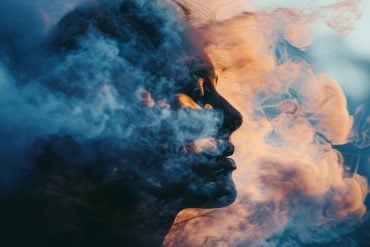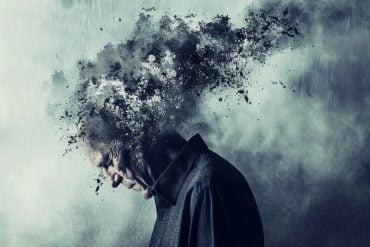Summary: People report experiencing greater feelings of anger on days following disrupted sleep.
Source: AASM
Feeling angry these days? New research suggests that a good night of sleep may be just what you need.
This program of research comprised an analysis of diaries and lab experiments. The researchers analyzed daily diary entries from 202 college students, who tracked their sleep, daily stressors, and anger over one month. Preliminary results show that individuals reported experiencing more anger on days following less sleep than usual for them.
The research team also conducted a lab experiment involving 147 community residents. Participants were randomly assigned either to maintain their regular sleep schedule or to restrict their sleep at home by about five hours across two nights. Following this manipulation, anger was assessed during exposure to irritating noise.
The experiment found that well-slept individuals adapted to noise and reported less anger after two days. In contrast, sleep-restricted individuals exhibited higher and increased anger in response to aversive noise, suggesting that losing sleep undermined emotional adaptation to frustrating circumstance. Subjective sleepiness accounted for most of the experimental effect of sleep loss on anger. A related experiment in which individuals reported anger following an online competitive game found similar results.

“The results are important because they provide strong causal evidence that sleep restriction increases anger and increases frustration over time,” said Zlatan Krizan, who has a doctorate in personality and social psychology and is a professor of psychology at Iowa State University in Ames, Iowa. “Moreover, the results from the daily diary study suggest such effects translate to everyday life, as young adults reported more anger in the afternoon on days they slept less.”
The authors noted that the findings highlight the importance of considering specific emotional reactions such as anger and their regulation in the context of sleep disruption.
About this sleep research article
Source:
AASM
Contacts:
Corinne Lederhouse – AASM
Image Source:
The image is in the public domain.
Original Research: Closed access
“Does Losing Sleep Unleash Anger?” by Z Krizan, A Miller, G Hisler. Science Advances.
Abstract
Does Losing Sleep Unleash Anger?
Introduction
Sleeping is understood as essential to affective function, yet little is known about how sleep shapes more specific and contextualized emotional responses besides anxiety and depression, such as anger. Anger itself involves arousal and can disrupt sleep. To examine the causal role of sleep in anger, a daily-diary study and an experimental study tested whether shortened sleep amplifies angry feelings, while exploring mediating mechanisms of this influence.
Methods
The daily-diary study (N = 202) collected daily reports of last-night’s sleep, daily stressors, and state anger across one month from college students, examining sleep and anger within everyday life. The experimental laboratory study (N = 147 community residents) examined changes in anger experienced during aversive noise following random assignment to either at-home sleep restriction (by about 5 hours across 2 nights), or to individuals’ regular schedule.
Results
In the daily-diary study, individuals experienced more anger on days following less sleep than their usual, with half of this effect attributed to the increased frequency of stressors experienced on such days, and somewhat independently from the effect of sleep duration on negative affect more generally. In the experimental study, well-slept individuals adapted to noise and reported less anger and negative affect after 2 days. In contrast, sleep-restricted individuals exhibited higher and increased anger responses. The impact of sleep restriction on anger held even after accounting for negative emotions more generally. Subjective sleepiness accounted for most of the experimental effect of sleep loss on anger.
Conclusion
Together, these results provide compelling evidence that lost sleep amplifies anger in both the laboratory and everyday life, while also pointing to short-term (subjective sleepiness) and mid-term (stress) mediators of these influences. The findings also point to the value of examining specific emotional reactions (and their regulation) in the context of sleep disruption, alongside affect more broadly.







